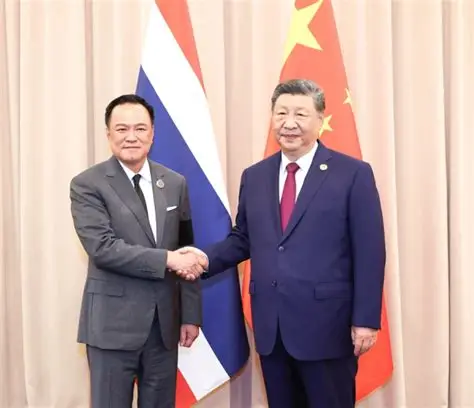
Anutin Charnvirakul, Prime Minister of Thailand, has formally told Xi Jinping, President of China, that Thailand will not legalise casinos or use gambling as an economic stimulus tool. The assurance came during a bilateral meeting at the APEC Economic Leaders' Meeting, and signals a clear shift in Thailand’s policy on entertainment-resort development.
Thailand’s tourism sector has been desperate for recovery after a sharp drop in Chinese visitor numbers, in part linked to previous policy uncertainty and concerns over gambling-related crime. With the “entertainment complex” bill that would have allowed integrated resorts with casinos having been officially withdrawn, PM Anutin emphasised his government’s preference to grow the economy via Thai talent, products and technology rather than from large-scale casino projects.
President Xi reportedly welcomed Thailand’s stance, stating China respects Thailand's domestic decisions and will discourage Chinese tourists from travelling abroad solely for casino gambling. This friendly diplomatic overture also aligns with broader cooperation negotiations between the two nations in areas like infrastructure and digital economy.
For Thailand, the move has several implications: one, it removes the considerable regulatory and social risk tied to introducing casinos in a country where illegal gambling is nonetheless endemic and where public opposition is strong. Two, it signals to investors poised for resort-casino projects that the Thai government is not opening that door in the near term — which may redirect investment to other ASEAN jurisdictions. Three, in the context of Thailand-China tourism relations, it serves as a confidence-building measure to attract back Chinese holidaymakers by showing the government takes responsible tourism and safety seriously.

 Content Writer: Janice Chew • Sunday, 25/11/2025 - 21:03:01 - PM
Content Writer: Janice Chew • Sunday, 25/11/2025 - 21:03:01 - PM